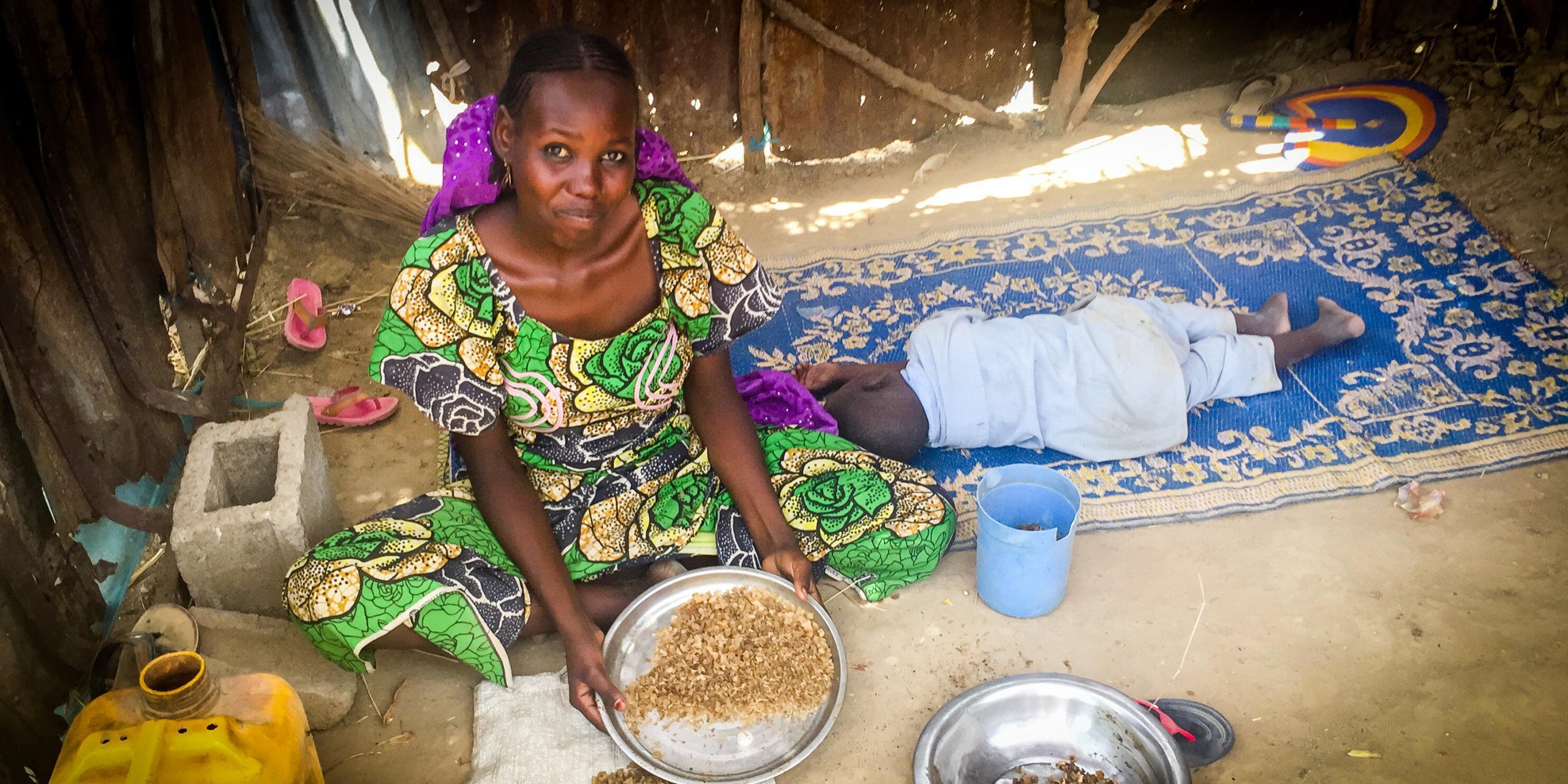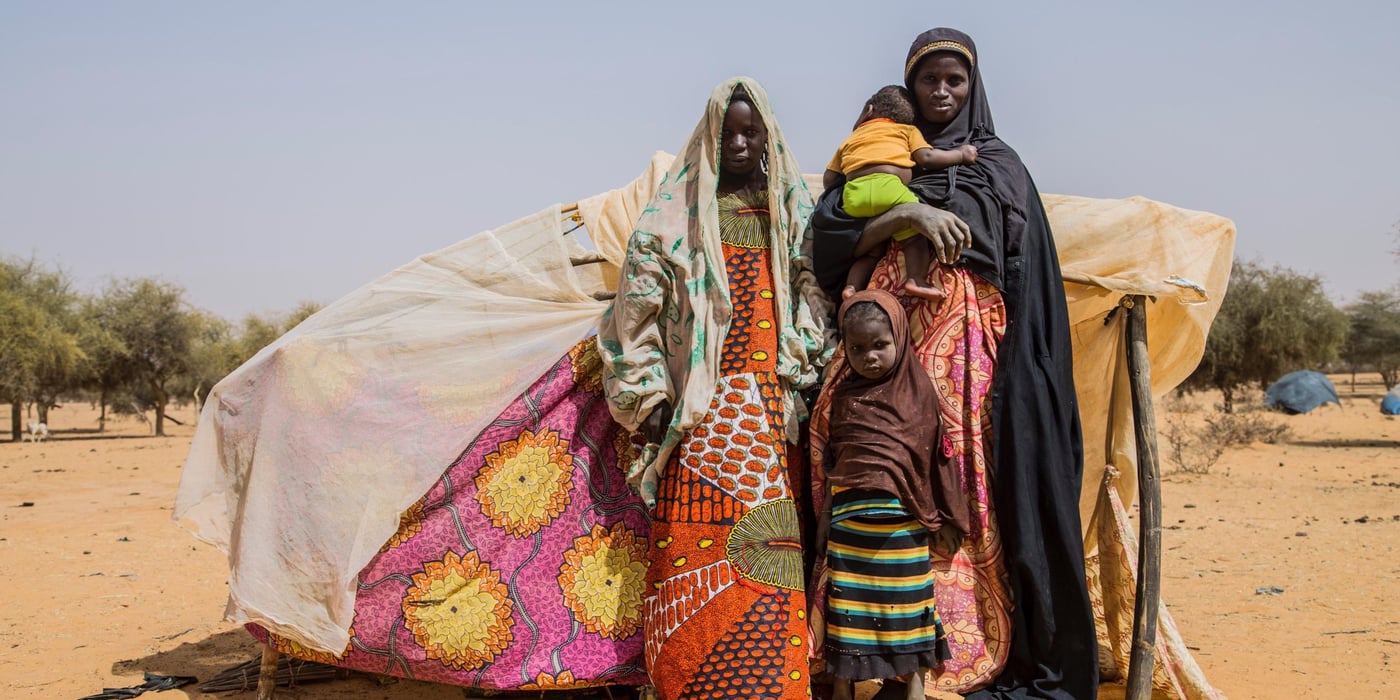
Dikwa, a town in northeastern Borno state, has become accessible again after years of unrest. Fatuma is one of over 100,000 displaced people in Dikwa struggling to cope with hunger, while waiting for food assistance. She sifts through remnants of food and seeds, to dry and prepare them to eat.
“We used to live on three to four meals a day, but not anymore. Now, we are happy if we can have one meal a day,” she says.
Years of fighting between the armed group Boko Haram and government forces has made it difficult for families to farm their land. This has dramatically reduced the availability of food and made the food in the marketplace much more expensive for families.
We used to live on three to four meals a day, but not anymore. Now, we are happy if we can have one meal a day.Fatuma, internally displaced in Borno State.
As almost 90 per cent of people in the region depend on agriculture to survive. The absence of farming has left most families relying entirely on food assistance.
“I have never seen anything like this,” says Silvia Beccacece of the Norwegian Refugee Council.
“People have no emotion in their faces, infrastructure barely exists, the destruction is visible everywhere. People live in makeshift shelters that are barely standing. The needs in Dikwa are really overwhelming.”
Almost 7 million people in the North-Nigeria are expected to go hungry between June to August, the upcoming lean season, according to the United Nations.
Thanks to rapid response funding from the Swedish International Development Cooperation Agency, NRC has expanded its activities into Dikwa to provide communities with urgent food assistance. Over the next three months, we will provide cash to help 640 families buy their own food.




